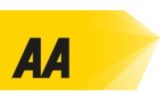Compare Personal Loans
Get a fair loan!
Personal loans up to £25,000
Simple, clear & fair
Check Eligibility »
All credit histories considered.One search using our personal loan service will give you clarity about your loan options.
You will be shown the rate you will actually get if you are pre-approved for your loan & sort those results just for you.
Selected Personal Loan Deals
Selected Existing Customer Loan Deals
There are no tables for this criteria
How to get a personal loan
You’ll need to start by comparing the loans available to you on the market.
Key factors to consider when you compare loans:
- The amount you want to borrow (remember, you might get better interest rates if you borrow more money, but make sure you can afford to pay it back)
- The length of the loan you need
- The APR and any other charges you may need to pay
Keep in mind that you’ll usually get offered lower rates for longer terms.
But, while your monthly repayments might be lower, you’ll be paying the loan back for longer.
And this means that you’ll pay more interest over the full term of your loan.
Try and find a loan with a low loan rate and a monthly repayment amount that you can afford, but can pay back quickly.
When you’ve found the personal loan that’s right for you, you can check your eligibility. This will involve your lender checking your credit rating.
You’ll need to provide the lender with your:
- Personal Information
- Address History
- Bank Details
Soft credit checks are used when you are just comparing loans available to you often through a loan comparison service and don’t affect your credit score, so you can do as many as you need.
However, hard credit checks are used by banks when they are assessing your eligibility for a specific loan. Too many hard checks in a short space of time can negatively affect your credit score because it looks like you are getting rejected for multiple attempts at borrowing money that loan providers don’t like.
Therefore, you should be careful with applying for multiple loans over a short period of time. And if you get rejected for one loan, try to sort out your credit issues or adjust your loan size before making another application.
Lenders will also take a detailed look at your income and expenditure when you apply for a loan to ensure you have the income in place to repay your borrowing.
Get a better loan and apply online.
Simple, clear & fair
Check Eligibility »
One search using our personal loan service will give you clarity about your loan options.
You will be shown the rate you will actually get if you are pre-approved for your loan & sort those results just for you.
What is the APR on a personal loan?
APR (Annual Percentage Rate) is the amount of interest that you’ll be charged each year, including any additional charges like annual fees.
There are two types of APR:
- Representative APR – this is an estimated rate of interest that may vary from application to application based on your credit score and other factors (but over 51% of applicants must qualify for this rate for it to be advertised)
- Guaranteed APR – this is a guaranteed rate of interest that applies for anybody who is accepted for the loan
Get a better loan and apply online.
Simple, clear & fair
Check Eligibility »
One search using our personal loan service will give you clarity about your loan options.
You will be shown the rate you will actually get, if you are pre-approved for your loan & sort those results just for you.
How do I get a better personal loan?
The best way to improve your chances of securing a loan is by improving your credit score.
You can check your current credit score for free online through Experian, Equifax or TransUnion.
If your credit score is low, consider taking the following action to improve your credit rating:
- Check your credit report for any errors in your personal or financial information
- Get a credit card and pay it off regularly to build your score – start sooner rather than later
- Make sure you’re paying your bills via direct debit
- Tidy up old and inactive bank accounts
- Avoid using your overdraft if possible
- If you’re paying rent, use Experian’s Rental Exchange Initiative to ensure your payments boost your score
- Use Experian Boost so that your Netflix, Spotify and Council Tax payments all count towards boosting your credit score
- Double check that you are un-linked from any ex-partners
What are some alternatives to personal loans?
- Credit cards
Credit cards might offer you a cheaper method of borrowing money but you won’t be able to borrow as much – credit cards are usually capped at £5,000.
- Secured loans
Secured loans offer lower interest rates but your loan is secured against an asset, like your home, that the bank can seize if you don’t keep up with your monthly repayments.
- Your overdraft
Usually only suitable as a short-term borrowing solution. Credit limits are low, and you’ll likely pay high interest rates or be charged for using your overdraft.
- Guarantor loans
Guarantor loans can be great if you have a low credit score. A family member or friend can be a guarantor for your loan if you can’t get approved, and they’ll be liable to repay your loan if you can’t.
Top 10 Loan Tips For 2022
1. Work out how much you can afford to borrow – It may take some time but work out your budget. What income do you have coming in and what are your outgoings? Factor in potential lifestyle changes and increases in the cost of living in determining what loan repayments you can afford.
2. Consider carefully the length of the credit agreement – the longer the loan period the more expensive the loan will be in total interest you will repay.
3. Do you know what your credit score is? This will affect your ability to get credit and the level of interest you might have to pay. If you check your credit report there may be details that you need to correct to ensure you are not overpaying on unnecessary interest charges. Get a FREE Credit Report with this service.
4. Shopping around? – When shopping around for a low-interest loan make sure you ask the lender to register a “quotation search” on your credit report and not a “credit application search”. The former won’t hurt your credit score.
5. What type of finance do you need? Research the different types of borrowing available to you. Some types of loans can be very expensive and may not be appropriate for your actual requirements.
6. Need help with your options? In shopping around for credit you may wish to use a loan broker to help you search the market.
7. The advertised APR may be different to what is offered to you. All lenders have to tell you the APR before you sign a loan agreement. Generally the lower the APR the better so shop around to get the best loan deal.
8. Know your budget and what you can afford to pay each month – Check with the lender or loan broker that the APR is fixed. If it is not and it is variable your repayments will fluctuate either up or down.
9. What additional costs will the lender charge? Check with the lender or loan broker if there are any charges not included in the APR. For example, does the cost include loan payment protection insurance – if yes is this insurance required?
10. Read the small print – Ensure that the terms and conditions of the loan suit your situation e.g. can you pay the loan off early without charges?
What Types Of Loan Are There?
The repayment terms will set out any interest to be charged and the timeframe for the loan to be repaid. According to HMRC “Central to the idea of a loan is that it involves one person (the creditor) agreeing to lend money to another (the debtor) in consideration of promise to repay that sum on demand or at some future point or on condition of some event happening.
A loan usually, but not always involves the payment of interest by the debtor”.
Types of Loan
There are many different types of monetary loan and below we have outlined different ways you can borrow.
Overdraft
Most current accounts offer an overdraft facility which provides a way of borrowing within set parameters. An overdraft can be authorised or unauthorised. An authorised overdraft agreed with the bank in advance allows you to draw money on your current account up to agreed amount. A fee and set rate of interest may be charged on this borrowing.
With an unauthorised overdraft the bank will charge significant fees and rate of interest. An overdraft facility can be withdrawn by the bank at any time. An overdraft is suitable for short term cash flow issues and is not a long term borrowing solution as the charges can be relatively high.
Unsecured Loans
Unsecured loans means that the lender relies on your promise to pay it back. As the lender requires no security they are taking a greater risk than say with a secured loan. In this respect lenders will often have strict lending requirements.
These requirements may mean unsecured loan rates are only offered to those with good credit records; loans may be for shorter time periods and there may be inflexibility about repaying your loan off early. The maximum loan you can borrow will often be limited – while there is no set maximum many unsecured loan deals in the UK will offer up to £15,000 for a repayment term of no more than 10 years. Many lenders will only provide unsecured loans to homeowners. For lenders who are more flexible in their selection criteria expect to pay higher rates of interest.
Secured Loans
A secured loan is a loan which is tied to an asset e.g. your home and in the event of failure to keep up repayments a lender has the right to force the sale of the asset. A mortgage is an example of a secured loan. As the lender has the safety net of your asset as security interest rates are often lower than unsecured loans, and many lenders will allow you to repay the loan early without penalty although you should always check the small print carefully before you sign any loan agreement. Secured loans are suitable for larger amounts and longer repayment terms.
Secured loan rates can vary significantly from one lender to the next so shop around or use a loan broker to help you get the best deal.
Bridging Loans
A bridging loan is a form of secured loan where the loan period is usually no longer than 9 to 12 months. Bridging loan finance is often used for short term funding requirements such as buying property at auctions, property development, breaking mortgage chains or buy to let purchases. This type of loan finance is typically for sums of £25,000 or more and the lender will normally require first charge over the asset being secured.
For bridging finance over £50,000 go to our sister site Clifton Private Finance.
Other Types of Loan
Credit Union Loans
Credit Unions are mutual financial organisations run and owned by members for members. Credit Unions typically provide saving schemes for members but sometimes also offer loans to members. The APR on loans cannot exceed 26.80% by law. These schemes are regulated by the FSA.
Payday Loans
Payday loans are short term loans typically for 30 day terms, where small amounts can be borrowed in advance of your salary. This type of loan can provide a useful service for unexpected bills giving access to cash at short notice, but this type of borrowing is one of the most expensive. Late payment costs can be very high and so this type of borrowing should only be used as a last resort and only if you understand the costs and charges involved.
Logbook loans
A logbook loan is a loan secured on your car or other vehicle. As part of obtaining a loan you will be required to give your vehicle registration document over to the lender and sign a bill of sale document. The lender effectively becomes the owner of your car although you can use the car as long as the loan repayments are met. With this type of loan the APR will be high and if you fall behind on repayments your vehicle may be sold (the lender will not have to go to court to do this). With this type of loan you need to be very aware of your responsibilities under the agreement.
Pawnbrokers
In these austere times many people are reverting to pawnbrokers to realise cash. This type of loan is provided in exchange for a valuable item. Normally you have approximately 6 months to repay the loan and any interest charged. If you cannot repay the loan by the deadline the pawnbroker may sell the item.
How Much Can You Borrow?
It is important that you do a proper budgeting exercise taking into account you incomings and outgoings taking into account the possibility of interest rises and increases in the cost of living as well as other factors such as the likelihood of losing your job or changes to your overall income e.g. if you start a family.
While there is a greater onus on lenders to lend responsibly you will ultimately need to consider what level of borrowing is appropriate for your circumstances. In assessing affordability lenders will take into account your income and outgoings and your current employment history. In calculating disposable income your total income will be taken into account less other debts you may have and living expenses.
The lender considering your loan application will have their own method of assessing affordability but it makes sense to do your own budgeting calculations to ensure the monthly repayment requirement is well within your budget.
Credit Scoring
As part of the loan application process lenders in determining whether they will lend you the money you require will carry out a credit scoring exercise.
Each lender will have their own credit scoring process but will typically take into account the information you provide in the application as well as any existing information they may have about you and what information is contained in your credit report which is held by an external agency. In gathering all this information the lender will determine a points score which may or may not qualify you for the loan you have applied for. If the points score is not high enough you may be turned down for the loan; offered a smaller loan; or offered the loan but on higher interest terms. A number of credit agencies offer free credit reports for the first 30 days to encourage you to use their services.
In recent times lenders as part of the drive for more responsible lending will also look at the number of times you have applied for credit within set timescales.
What Is A Good Credit Score To Get A Loan
Each lender will have their own credit scoring process but will typically take into account the information you provide in the application as well as any existing information they may have about you and what information is contained in your credit report which is held by an external agency.
In gathering all this information the lender will determine a points score which may or may not qualify you for the loan you have applied for. If the points score is not high enough you may be turned down for the loan; offered a smaller loan; or offered the loan but on higher interest terms.
The point of this exercise is to try and predict your future behaviour based on your past behaviour, so if you have been out of the UK for some time but have always had a good borrowing record you could find that lenders are not prepared to give you a loan or at least a loan at a market leading rate because they cannot measure the risk lending you money.
A number of credit agencies offer free credit reports for the first 30 days to encourage you to use their services.
Get a better loan and apply online.
Simple, clear & fair
Compare »
One search using our personal loan service will give you clarity about your loan options.
You will be shown the rate you will actually get if you are pre-approved for your loan & sort those results just for you.
Uplift Money Ltd are an appointed representative of Dennico Ltd who are authorised and regulated by the Financial Conduct Authority. Dennico Limited is registered in England & Wales under company number 11034439. Registered Office is Steam Mill Business Centre, Steam Mill Street, Chester, UK, CH3 5AN.




